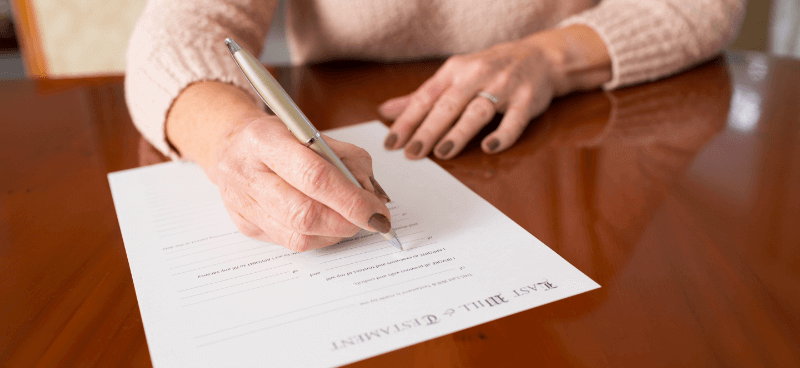Do you need more information before you appoint a power of attorney? Or perhaps you have just been assigned power of attorney and want to know your responsibilities.
Here we will dive into the specifics of what a power of attorney means, what the most common type of power of attorney is and what a power of attorney can and can’t do.
What does a power of attorney mean?
A power of attorney is a legal document that allows someone to make decisions for you, or act on your behalf, if you are no longer able to or if you no longer want to make your own decisions.
Who can be an attorney?
Anyone aged 18 or over who has the mental ability to make financial, property and medical decisions. It is important that you trust the person/people you choose to be an attorney. Your attorney could be a family member, a friend, your spouse or partner; or they could be a professional such as a solicitor.

Please note that your spouse does not automatically have the authority to make decisions for you if you lose mental capacity. Even if you are married or in a civil partnership, you must get a power of attorney document signed.
How many power of attorneys can I have?
You have the option to appoint one or more power of attorneys. If you appoint more than one attorney, they can act either:
- ‘Jointly’ – they must always make decisions together
- ‘Jointly and severally’ – they can make decisions together or individually
For example, you may want your attorneys to act jointly when deciding on where you live; but may trust one individual to pay your mortgage on your behalf.
A ‘jointly and severally’ appointment of power is preferred. This option reduces risk because the surviving attorney can continue to make decisions on your behalf.
Lasting power of attorney (LPA)
A lasting power of attorney (LPA) is the most common type. An LPA can be used in two circumstances; it can be used immediately with your permission while you still have the capacity, or it can come into effect when you lose mental capacity. To make sure you are covered in the future, it is a good idea to set up an LPA.

You can restrict the types of decisions your attorney can make, or let them make all decisions on your behalf. LPAs can be broken down into two types depending on your interest; property and financial affairs LPA and health and welfare LPA.
LPA for financial decisions
An LPA for financial decisions can cover things such as:
- Buying and selling property
- Paying the mortgage
- Investing money
- Paying bills and debts
- Arranging repairs to a property
- Dealing with tax affairs
It is important to note that an attorney must keep their accounts and money separate from yours. You can ask for regular updates on how much is spent and how much money you have. If you lose mental capacity, these details can be sent to your solicitor – offering extra protection.
LPA for health and care decisions
An attorney can generally make decisions about things such as:
- Where you live
- Your medical care
- Your day-to-day care, including what you wear and what you eat
- Who you should have contact with
- What kind of social activities you should take part in

In addition, you can give special permission to your attorney to make decisions about life-saving treatment.
What can’t a power of attorney do?
Although an attorney holds a lot of responsibility, there are a few things that they cannot do. Some examples of actions that a power of attorney cannot take are:
- Change a principal’s will
- Break their fiduciary duty to act in the principal’s best interest
- Make decisions on behalf of the principal after their passing
- Change or transfer power of attorney to someone else
When can my attorney no longer act on my behalf?
Your attorney no longer has the authority to act on your behalf when they:
- No longer want to act as your attorney
- Lose mental capacity
- Were previously your spouse or civil partner but your relationship has legally ended since your LPA was registered
- Become bankrupt or are subject to a debt relief order
- Pass away
What do I do if I lose my original power of attorney?
Without the power of attorney document, the agent cannot prove that they have the right to act on your behalf.
The Office of the Public Guardian can supply office copies of the original document and may charge a fee. Using the Office of the Public Guardian, you can also:
- View a summary of an LPA
- Check whether an LPA is valid
- Check who the attorneys are on an LPA
If you still cannot access the document, a new power of attorney will need to be created. You should now be up to speed with the basics of what a power of attorney is and the responsibilities they have. If you are looking to create a power of attorney, we can advise and support you every step of the way with our services.
Contact one of our qualified and experienced solicitors today.


